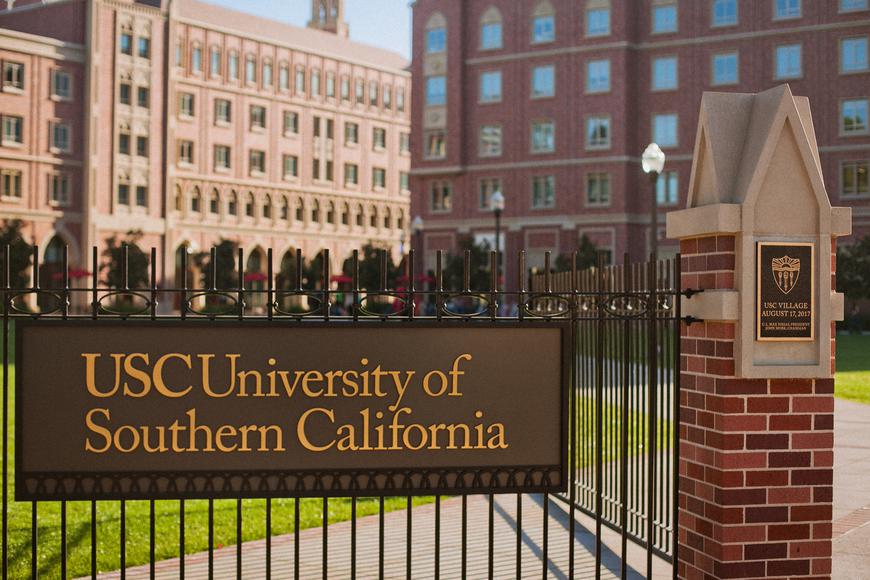Introduction c.w. park usc lawsuit
c.w. park usc lawsuit n recent years, the University of Southern California (USC) has faced several high-profile lawsuits, but one case that has garnered significant attention is the C.W. Park USC lawsuit. This lawsuit has sparked meaningful conversations about power dynamics, accountability, and the responsibility of institutions to protect their students. In this article, we will delve into the details of the lawsuit, exploring the allegations, the parties involved, and the implications of this case.
Background of the Case
The C.W. Park USC lawsuit revolves around allegations of sexual misconduct and harassment made by a former USC student, C.W. Park, against a retired university professor, Dr. James Heaps. Park alleges that Heaps engaged in inappropriate behavior during medical exams, including sexual comments and unwanted touching. The lawsuit claims that USC failed to adequately address Park’s complaints, allowing Heaps to continue his behavior and potentially harm other students.
The Allegations Against Dr. James Heaps
Dr. James Heaps, a former obstetrician-gynecologist and professor at USC’s Keck School of Medicine, is at the center of the allegations. Park alleges that during medical exams, Heaps made inappropriate comments about her body and touched her inappropriately. The lawsuit claims that Heaps’ behavior was not only unprofessional but also caused Park significant emotional distress.
USC’s Response and Investigation
USC launched an investigation into Park’s allegations, which resulted in Heaps’ suspension and eventual resignation. However, Park’s lawsuit claims that USC’s response was inadequate and that the university failed to take appropriate action to prevent further incidents. The lawsuit alleges that USC prioritized protecting its reputation over safeguarding its students, allowing Heaps to continue his behavior for an extended period.
Implications of the Case
The C.W. Park USC lawsuit has far-reaching implications for higher education institutions and beyond. It highlights the importance of taking allegations of sexual misconduct seriously and taking prompt action to address them. The case also underscores the need for institutions to prioritize the safety and well-being of their students over reputational concerns.
The Broader Context of Sexual Misconduct in Higher Education

The C.W. Park USC lawsuit is not an isolated incident. It is part of a larger pattern of sexual misconduct and harassment in higher education. The #MeToo movement has brought attention to the prevalence of sexual misconduct on college campuses, and institutions are facing increasing pressure to address these issues.
The Impact on Students and Survivors
The C.W. Park USC lawsuit has significant implications for students and survivors of sexual misconduct. It highlights the importance of believing and supporting survivors and taking allegations of sexual misconduct seriously. The case also underscores the need for institutions to provide adequate resources and support for students who have experienced sexual misconduct.
The Role of Power Dynamics
The C.W. Park USC lawsuit also highlights the importance of addressing power dynamics in cases of sexual misconduct. As a professor and doctor, Heaps held a position of power and authority over Park, making it difficult for her to speak out against his behavior. The case underscores the need for institutions to address these power imbalances and create a culture of accountability and respect.
The Legal Implications
The C.W. Park USC lawsuit has significant legal implications. It highlights the importance of institutions taking allegations of sexual misconduct seriously and taking prompt action to address them. The case also underscores the need for institutions to have adequate policies and procedures in place to prevent and respond to sexual misconduct.
The Response from USC

USC has responded to the lawsuit, stating that it takes allegations of sexual misconduct seriously and has taken steps to address the issues raised in the lawsuit. The university has also implemented new policies and procedures to prevent and respond to sexual misconduct.
The Impact on the Community
The C.W. Park USC lawsuit has significantly impacted the community, both within and outside of USC. It has sparked meaningful conversations about sexual misconduct, power dynamics, and accountability. The case has also highlighted the need for institutions to prioritize the safety and well-being of their students and to take allegations of sexual misconduct seriously.
The Role of Activism
The C.W. Park’s USC lawsuit has also highlighted the importance of activism and advocacy in bringing attention to issues of sexual misconduct. Park’s bravery in speaking out against Heaps and USC has inspired others to do the same and helped create a culture of accountability and respect.
The Importance of Support
The C.W. Park USC lawsuit has also underscored the importance of support for survivors of sexual misconduct. Park has spoken publicly about the emotional distress she experienced as a result of Heaps’ behavior and has highlighted the need for institutions to provide adequate resources and support for students who have experienced sexual misconduct.
The Legal Implications
The C.W. Park USC lawsuit has significant and broader legal implications for both USC and higher education institutions. It highlights the importance of institutions taking allegations of sexual misconduct seriously and taking prompt action to address them. The case also underscores the need for institutions to have adequate policies and procedures in place to prevent and respond to sexual misconduct.
The Future of Higher Education
The C.W. Park USC lawsuit provides an opportunity for institutions of higher education to reflect on their policies and procedures and make necessary changes to prevent and respond to sexual misconduct. It also highlights the importance of believing and supporting survivors and creating a culture of accountability and respect.
Conclusion
The C.W. Park USC lawsuit is a significant case highlighting the importance of accountability and transparency in higher education institutions. It reminds us that institutions have a responsibility to protect their students and take allegations of sexual misconduct seriously. As we move forward, we must prioritize the safety and well-being of students and create a culture of respect and accountability.





